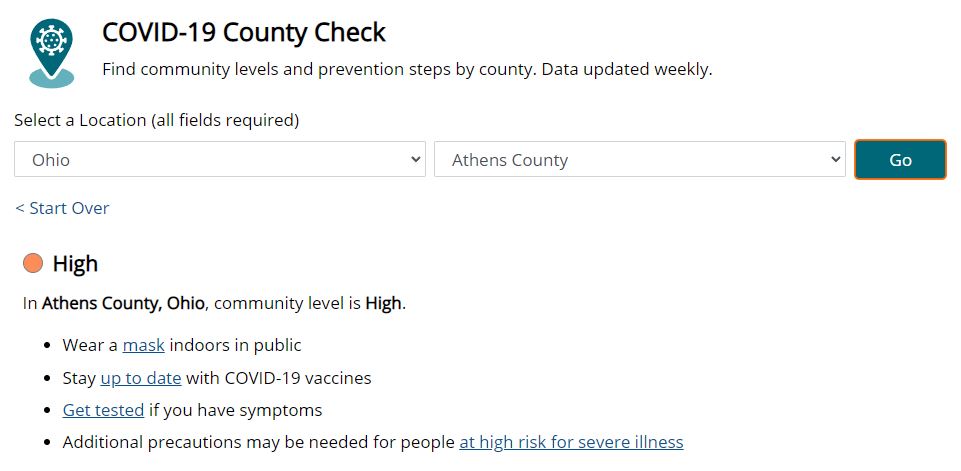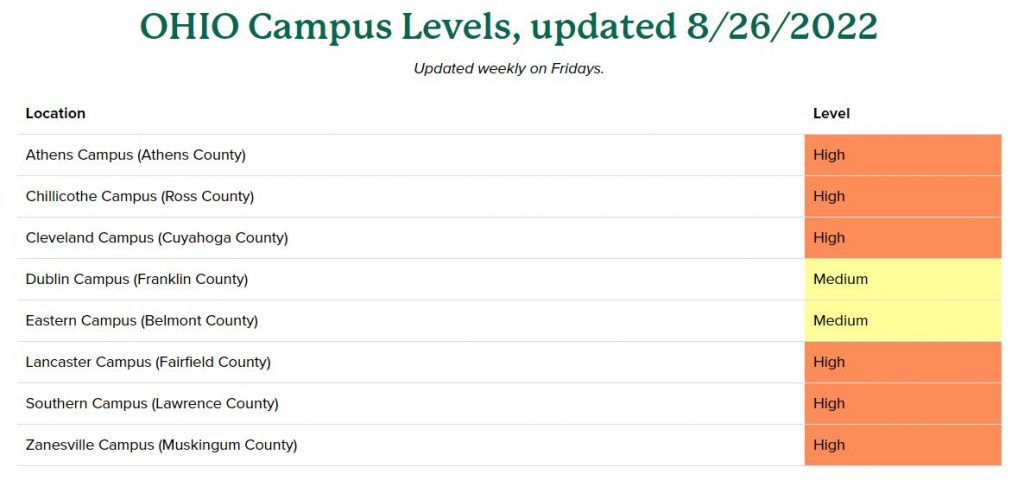News
Mask requirement in classrooms on OU’s Athens campus returns Monday as county reaches High COVID-19 community level
By: WOUB News Team
Posted on:
ATHENS, Ohio (WOUB) — Ohio University will require masks on the Athens campus starting Monday in classrooms, labs, studios, clinical settings, other learning spaces and its Child Development Center based on its coronavirus policy and the county’s COVID-19 community level.
The announcement Friday came after Thursday’s COVID-19 update from the state indicated Athens County had risen to a high COVID-19 community level, according to the Centers for Disease Control and Prevention.

University policy states if the community is listed as “high” by the CDC, masks are required in classrooms, laboratories, studios, clinical settings, other learning spaces and the Child Development Center. If the community is listed as “medium,” masks are only recommended in the same spaces. If the community is “low,” masks are optional on campus.
Low or medium communities may still require masks at OU in clinical healthcare facilities, COVID-19 testing facilities and public transportation. Additionally, students, faculty and staff who test positive or are exposed to COVID-19 must follow OU masking guidelines.
The Athens campus is not the only one currently in a high community. Mask requirements for classrooms are in effect for OU’s Chillicothe, Cleveland, Lancaster, Southern (Lawrence County) and Zanesville campuses because of their county’s COVID-19 community levels.

-Children under 2 years old.
-Any person while actively eating or drinking.
-In settings where it is not practicable or feasible to wear a face covering such as when receiving dental treatments or while swimming.
-Where working with equipment or in a process where wearing face coverings are impractical or dangerous, as determined by instructors or supervisors.
-People who, due to extraordinary circumstances, claim and receive a written exemption from the university’s face covering requirement through the appropriate university process.
-Employees, students, and visitors with a disability who are unable to wear a face covering and do not receive an approved exemption may request reasonable accommodations through the Office for University Accessibility.

